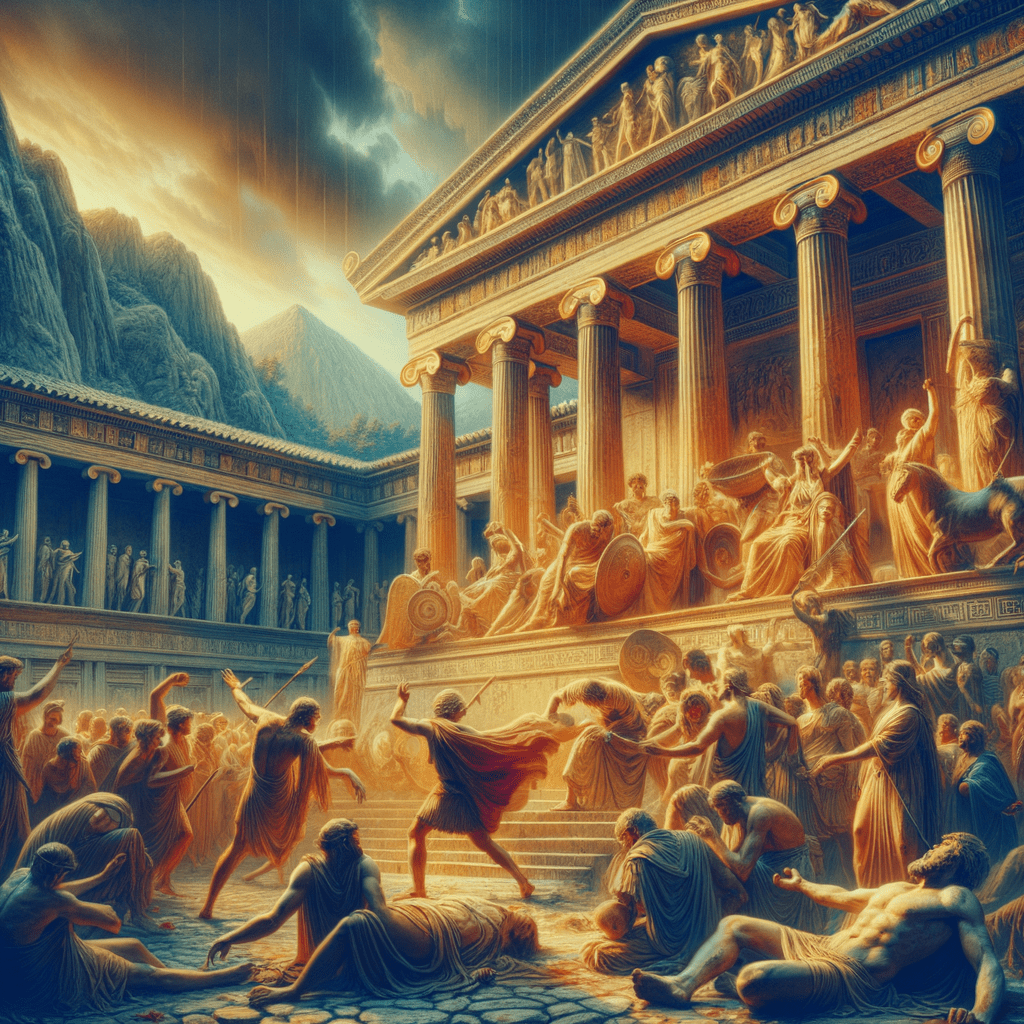All About Hellenism: The Expression of Drama and Emotion
Hellenism represents a significant historical and cultural period characterized by intense expression of drama and emotion. This article delves deeply into how Hellenism influenced art, literature, and philosophy, offering a comprehensive and well-documented overview.
Introduction to Hellenism
Hellenism is a historical period that spans from the death of Alexander the Great in 323 BCE to the Roman conquest of Egypt in 30 BCE. This period is marked by the spread of Greek culture throughout the Mediterranean and beyond, profoundly influencing local societies.
Hellenism saw the fusion of Greek cultural elements with those of the East, creating a new and vibrant culture. This period is known for its emphasis on individualism, emotional expression, and drama, which are reflected in all forms of art and thought.
Hellenistic Art
Hellenistic art is characterized by unprecedented realism and strong emotional expression. Artists of this period sought to depict reality in more detailed and dramatic ways compared to their predecessors.
Sculpture: Hellenistic sculptures are known for their dynamic and realistic representation of the human body. An emblematic example is the statue of the Venus de Milo, which shows a balance between ideal beauty and realism.
Painting: Painting also saw significant evolution, with the use of perspective and chiaroscuro to create depth and drama. The frescoes of Pompeii are an excellent example of this technique.
Architecture: Hellenistic architecture introduced new elements such as the Corinthian colonnade and the use of open spaces to create a sense of grandeur and drama.
For more information on Hellenistic art, visit this authoritative site.
Hellenistic Literature
Hellenistic literature saw a wide variety of genres and styles, with a particular emphasis on drama and emotion. Authors of this period explored complex and profound themes, often reflecting the social and political turbulence of their time.
Poetry: Hellenistic poetry is known for its sophistication and complexity. Poets like Callimachus and Theocritus experimented with new forms and themes, creating works that explore love, nature, and mythology.
Theater: Hellenistic theater continued the tradition of Greek drama, but with a greater emphasis on individualism and emotion. The works of Menander exemplify this shift, with more complex characters and realistic situations.
Prose: Hellenistic prose saw the birth of new genres such as the novel and biography. Authors like Plutarch wrote works that combine history, philosophy, and narrative to explore the human condition.
To delve deeper into Hellenistic literature, consult this authoritative site.
Hellenistic Philosophy
Hellenistic philosophy saw the rise of various schools of thought that sought to answer fundamental questions about life and existence. These schools have had a lasting influence on Western philosophy.
Stoicism: Founded by Zeno of Citium, Stoicism emphasizes virtue as the highest good and the necessity of living in harmony with nature. Stoics believed that negative emotions resulted from incorrect judgments and that wisdom could lead to inner tranquility.
Epicureanism: Founded by Epicurus, Epicureanism holds that pleasure is the highest good but distinguishes between physical and mental pleasures, emphasizing the importance of moderation and wisdom to achieve happiness.
Skepticism: Skeptical philosophers, like Pyrrho, questioned the possibility of knowing absolute truth, arguing that suspension of judgment could lead to inner peace.
Conclusion
In conclusion, Hellenism was a period of great innovation and cultural expression. Hellenistic art, literature, and philosophy have left an indelible mark on Western culture, deeply influencing how we understand drama and emotion. This period saw the fusion of diverse cultural traditions, creating a new and vibrant culture that continues to inspire and fascinate.
We hope this article has provided you with a deeper understanding of Hellenism and its historical and cultural significance. For further reading, we invite you to explore the external resources mentioned.




